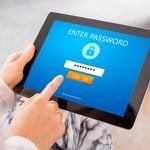5 Ways to Prevent Identity Theft at the Office
Could you become a victim of theft at the office? Your money may be under lock and key, but workplace thieves may be looking for something even more valuable: your identity.
Preventing Identity Theft at the Office
Identity fraud is more common than ever. And it can start at the office, with pay stubs, personnel files or even trash bins full of personal info for the taking. “We’re comfortable at the workplace, so we leave documents lying around,” says Paul Wing, co-author of Protecting Your Money, Privacy and Identity From Theft, Loss and Misuse. “We think it’s a safe place, but it’s not.” Here’s how to protect yourself:
- Ask questions. Where is your personal information stored? How long is it kept on file? Is it shredded before it’s discarded?
- Be coy about what you disclose. Does your boss really need your birthdate? “Be careful not to give out more information than you need to,” says Philippa Lawson, director of the Samuelson-Glushko Canadian Internet Policy and Public Interest Clinic at the University of Ottawa.
- Leave your personal life at home. Avoid using your office computer, phone or fax for personal transactions such as banking or credit-card purchases. “Minimize the personal things you talk about,” Wing says.
- Safeguard your stuff. Keep your purse or wallet with you or in a locked drawer, not on a shelf or in a coat pocket: Your SIN card or driver’s license could be copied and put back, and you’d never know.
- Protect against intruders. If possible, keep your office door locked. Notify security of suspicious strangers. Or ask the intruder why he’s there, says Sgt. Marc Butz of the Quebec provincial police. “If he’s not supposed to be there, he’ll leave.”



